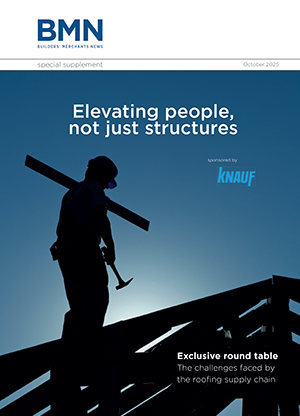Employers in the UK are facing a skills shortage with engineering and manufacturing companies amongst the worst affected, according to new research published by City & Guilds.
Yesterday’s findings show that whilst 60% of all employers are struggling to find new employees with the right skills, the figure is much higher for the engineering and manufacturing sector at 72%.
The research, which gathered views from more than 1,000 small, medium and large businesses, found that 41% of engineering and manufacturing companies in the UK are considering looking abroad for potential new recruits and 57% of those will do so because they believe that young people in the UK are leaving education without the right skills.
This is significantly higher than organisations in other sectors, which are more optimistic about finding strong candidates in the UK workforce. For example, only 25% of those in the public sector are considering looking abroad for new employees, 22% in the retail and sales sector and 24% in hospitality and tourism.
More than half of employers from engineering and manufacturing companies (53%) believe that the current education system focuses too much on academia to the detriment of core skills like literacy, maths and communication.
Employers also feel that young people today are not ‘work ready’. Two thirds of employers in the sector believe that young people’s employment expectations are too high, 73% think that young people do not understand what employers are looking for and therefore many do not get past the interview stage; and 61% of organisations believe young people are less equipped for the workplace compared with five years ago.
High-quality work experience puts young people in the strongest position for successfully finding a job, according to the findings. Almost 80% of employers from the engineering and manufacturing sector believe that work experience is essential to ensuring young people are ready for work while two thirds of employers (68%) would be more likely to hire a young person with work experience over someone with none.
Other key findings from employers in the engineering and manufacturing sector include:
- Around half of employers (49%) in the engineering and manufacturing sector have given a full-time job to someone they’ve taken on for a work experience placement, compared to 29% who have employed someone following a graduate scheme.
- Seventy-one percent believe that structured work experience should be mandatory for all 16-18 year olds.
- Young people with work experience are thought to be more employable because:
- They understand the work environment better and how to conduct themselves in it (78%)
- They have a better attitude towards work and learning on the job (62%)
- They have a better understanding of industry/ know what they are getting into (69%).
Despite this, the survey found that almost 40% of those companies in engineering and manufacturing do not currently work with local schools or colleges to attract new talent. Sixty-seven percent of employers in the sector said they remain uncertain about how to deliver the most effective work experience placements and would welcome guidelines and support and 61% would like to be more involved in qualification creation.
Chris Jones, chief executive officer and director general of City & Guilds, said: “This research has huge implications for the government’s attempts to curb youth unemployment, which still lags at around 1m. But the issue is not simply a lack of job opportunities. There is a more fundamental problem with the qualifications, core skills and lack of understanding of the workplace that is preventing young people from successfully finding employment.
“It is clear that a step change is needed in the education system to move away from a pure focus on academia towards a curriculum that meets the needs of employers. That’s why we have embedded a work experience placement into our City & Guilds TechBac which is launching next year. Businesses, the education system and policy makers need to step up and give every young person the opportunity to have high-quality work experience placements whilst they are at school or college. Only then will we equip our young people with the skills they need to be the successful workforce of the future that our economy demands.”
City & Guilds has produced an employers’ checklist for successful work placements which advises the following best practice:
- A comprehensive induction to help the person on work experience to settle in
- Assigning a mentor or ‘buddy’ to the learner to help them develop new skills and have new experiences
- Plan the learner’s workload and give them real work so they contribute to the business and feel valued. Ensure the work will stretch and develop them
- Provide regular feedback and check on progress
- Find time to liaise with the learner’s course director in their school or college.
From September 2014, City & Guilds will also be offering a new TechBac programme of study, which will have structured work experience as a key part of the overall study programme.





